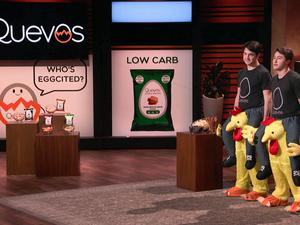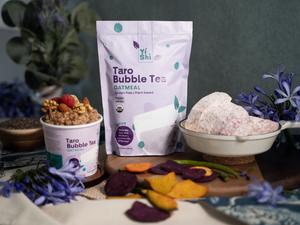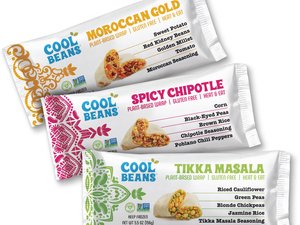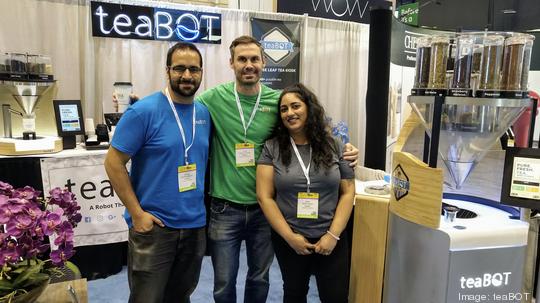
In America, coffee is king. But for many workers, particularly millennials and Gen Z, they're ditching the cup of joe for tea. And a Chicago startup thinks it has what companies need to satisfy their tea-loving workforces.
Meet teaBOT, a startup founded out of Toronto that's designed a tea-making robot. The teaBOT machine sources teas from across the world, allowing users to create custom drinks by controlling the percentage of each ingredient. You can order a tea with 20% amaretto cherry, 30% peppermint and 50% cacao, for example. The teaBOT also lets you control the strength of the tea ands even its temperature.
The result is a custom tea you couldn't find at a cafe or make at home. And it's taking off with companies who are using the robot as an office amenity for their employees.
The startup was founded in 2013 by CEO Rehman Merali, who earned his Ph.D. in autonomous space robotics at the University of Toronto. The startup went through Y Combinator in 2015, and it was there that Merali met Chris Deutsch, a Chicago angel investor. Deutsch not only invested in teaBOT but joined the company as a "re-founder" to help the startup with its strategic vision. The startup is now co-located in Toronto and Chicago.
TeaBOT's original vision was to take a retail approach, positioning its machines in malls, airports and other high-traffic areas. But in late 2015 Google came calling with a plan to put a teaBOT in its brand-new Chicago office in Fulton Market. Rather than charge employees per drink, it opted to turn it into a free amenity for its workers, paying teaBOT a monthly fee instead.
"That changed the future of the company," Merali said.
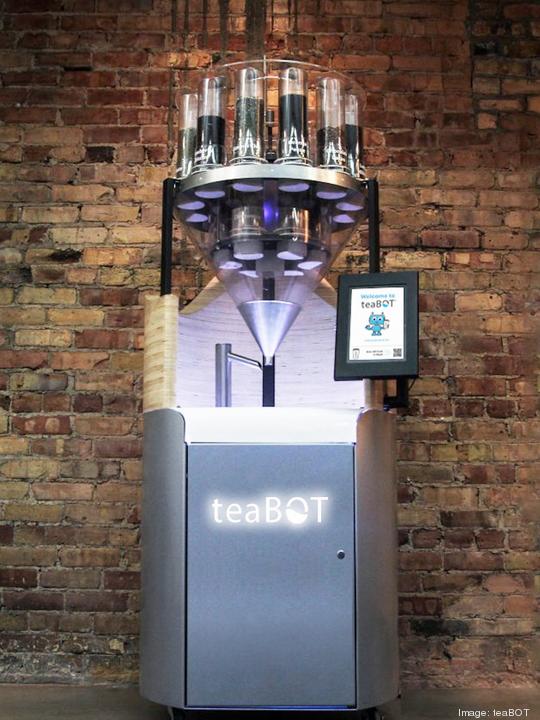
From there, teaBOT became an "amenity as a service," launching exclusively with companies that wanted to provide free tea to their workforce. With Google as the startup's first foray in the U.S. market, teaBOT began selling machines to McKinsey, HubSpot, Chicago's 1871 and more.
But shortly after its office-only strategy, Covid hit.
With office buildings closed and employees working from home, teaBOT's machines "went underutilized, to say the least," Merali said. The startup went to all of its customers almost immediately and cut its monthly charges in half, a move the company said salvaged its relationships with corporate clients and kept the business afloat.
"Covid almost killed us," Deutsch said. "We had to be very proactive, and it's a good thing we did."
But as companies returned to the office, so has teaBOT's revenue. Its machines are in around 40 offices, mostly concentrated in Toronto, Chicago and Boston. Other teaBOT customers include the University of Toronto, Unilever and Mount Sinai hospital in Toronto.
The Covid pandemic also unlocked a new revenue stream for teaBOT, and a new way for users to order tea. Rather than simply placing an order on the kiosk's screen, the startup has developed an app where users can place orders and scan a QR code when they're ready for the teaBOT to make their drink. Users will also be able to order their specific blends to be delivered to their door, meaning employees can get their same teaBOT mixture whether working at the office or from home.
The startup, which has four full-time employees, has raised $2.3 million in VC funding to date.
